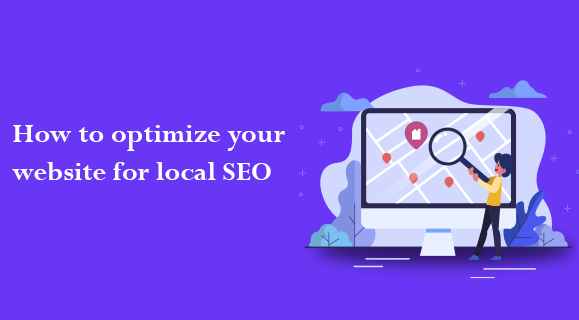Alright, let’s cut to the chase if your website isn’t popping up when folks in your area are Googling what you offer, you’re missing out. Big time. Knowing how to optimize your website for local SEO is the secret sauce to getting found by the people who matter most: your neighbors, nearby shoppers, and the ones who are ready to buy like yesterday.
Whether you run a cozy café, a quirky boutique, or a homegrown service biz, local SEO is your digital megaphone. And don’t worry about boring jargon or tech headaches ahead. Just real-deal tips, tricks, and a little digital elbow grease.
How to Optimize Your Website for Local SEO Without the Headache
Claim and Supercharge Your Google Business Profile
If you haven’t claimed your Google Business Profile, what’re you even doing? It’s like having a store without a signboard. This is your first (and most powerful) step in making your site shine locally.
Here’s what you should do:
- Claim your profile and verify it.
- Fill in every detail: hours, address, services, photos you name it.
- Add real photos, not stock ones. Think cozy, authentic, inviting.
- Collect reviews and respond to them (yes, even the awkward ones).
Nail Your NAP Consistency Across the Web
Your NAP (Name, Address, Phone Number) should be the same everywhere. And I mean everywhere your website, social media, online directories, pizza delivery notes okay, maybe not that last one.
Keep an eye on:
- Business directories like Yelp, Bing Places, Yellow Pages
- Social media bios
- Footer of your website
- Any local chamber of commerce listings
Tiny typos? They matter more than you’d think. Google gets cranky when things don’t match.
Local SEO for Websites: Build Location Into Your Content
Sprinkle Local Love Into Your Website Content
We’re not talking about awkward keyword stuffing here, just thoughtful, natural mentions of your city, neighborhood, or service area.
Try this:
- Write blog posts about local events or news
- Include location-specific testimonials
- Mention nearby landmarks if they’re relevant
Example: “Serving hot coffee just two blocks from Lincoln Park since 2010.”
Create Location-Specific Landing Pages
If you serve multiple areas, don’t lump them into one generic page. Craft unique landing pages tailored to each location. Trust me, Google eats that stuff up.
Why it works:
- Builds relevance for specific local searches
- Increases chances of ranking for “near me” queries
- Makes customers feel seen (aww)
Optimize Website for Local Search: Technical But Totally Doable
Make Sure Your Site’s Mobile-Friendly
Most local searches happen on the go. If your site’s a mess on mobile, kiss those customers goodbye.
Checklist:
- Fast load times (under 3 seconds, ideally)
- Buttons big enough for thumbs
- Easy-to-read fonts and layout
- Click-to-call phone numbers
Add Schema Markup (Don’t Worry, It’s Not That Scary)
Local schema markup tells search engines exactly what your biz is about. Think of it as a cheat sheet for Google.
Use it to:
- Tag your business name, hours, address, etc.
- Help with those snazzy rich results (stars, reviews, maps)
If you’re not code-savvy, tools like Google’s Structured Data Markup Helper have your back.
Local SEO Checklist 2025: What Else Should You Keep in Mind?
Focus on Local Backlinks
Get other trusted local websites to link to you. It’s like getting a virtual high five from your community.
Start with:
- Local bloggers and influencers
- Sponsorships (events, charities, school fundraisers)
- Guest posting on community sites
Encourage Customer Reviews (And Use Them Smartly)
Online reviews aren’t just for vanity. They seriously impact rankings. The more quality, keyword-rich reviews you get, the better your SEO score.
Pro tips:
- Ask customers in person
- Send a follow-up email with a link
- Display reviews on your website
FAQs
Q: How long does local SEO take to work?
A: Usually, you’ll start seeing results in 1–3 months, depending on competition and how consistent your efforts are. It’s a marathon, not a sprint.
Q: Do I need a blog for local SEO?
A: It’s not mandatory, but it helps a lot. Blogging about local topics boosts relevance and gives Google more content to crawl.
Q: Is local SEO different from regular SEO?
A: Yep! While regular SEO targets broad audiences, local SEO zooms in on people searching for products or services in a specific area.
Q: Can I do local SEO myself or should I hire someone?
A: Totally doable on your own with a little patience. But if you’re juggling a million tasks, hiring help can save you time (and sanity).
Conclusion
So there you have it, your not-so-boring guide on how to optimize your website for local SEO. Whether you’re a tech rookie or a digital whiz, these steps are totally doable and seriously effective. From updating your Google Business Profile to writing local-friendly content and beefing up your mobile site, it’s all about making your business the obvious local choice.
Remember, it’s not just about search engines, it’s about connecting with your local community. So roll up those sleeves and start climbing those rankings. The locals are waiting.

Leave a Reply